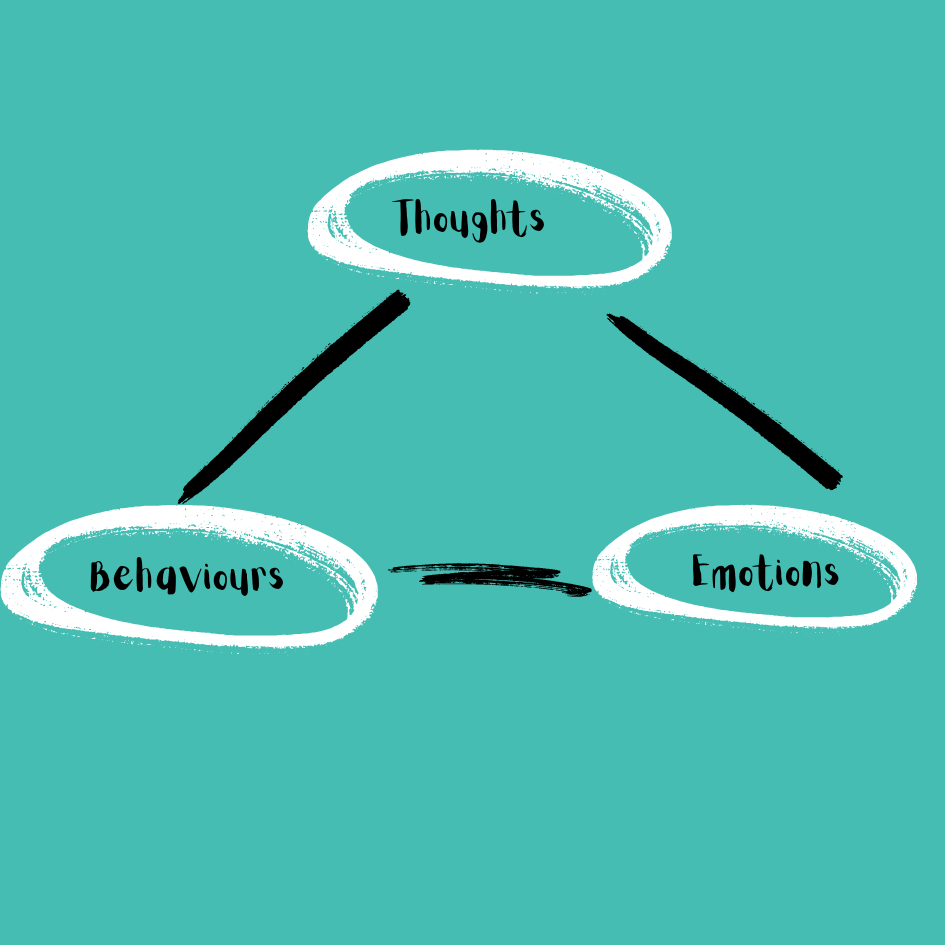- Reasons For Getting Adult Autism Assessments
- Will You Require a Report?
- How much are adult autism assessments?
- How is Autism Assessed?
- Jelly Health Adult Autism Screening Assessment
- Do You Need a Referral From Your GP?
- How Adult Autism Assessments Can Result in Diagnoses of Anxiety or ADHD
- Autism Assessment Near Me
- Psychologist For Autistic Adults Near Me
Adult Autism Assessments
Autism Spectrum Disorder (ASD) is a lifelong neurodevelopmental condition characterised by challenges in social communication, restricted interests, and repetitive behaviours. Symptoms can vary widely in severity and impact on daily functioning. Autistic people may have difficulties with verbal and non-verbal communication, social interactions, and exhibit unique patterns of behaviour and interests. The term “spectrum” reflects the wide range of symptoms and abilities among autistic people. ASD is a lifelong disorder, however with the right support and resources autistic people can live fulfilling lives.
People decide to undergo adult autism assessments for a variety of reasons. Sometimes this can be prompted by recent events such as the ASD diagnosis of a child. Or you may find you are stuck in a cycle of challenges with work or relationships.

Reasons For Getting Adult Autism Assessments
Ultimately a primary motivation is the search for understanding and self-awareness. Individuals who have struggled with social situations, communication, and sensory sensitivities often seek an explanation for their lifelong challenges. Obtaining an ASD diagnosis can provide clarity and help them understand their unique experience of the world.
Another reason adults pursue an assessment is improving mental health. Undiagnosed autism can lead to significant stress, anxiety and depression, stemming from misunderstandings and the pressure to conform to neurotypical expectations. A formal diagnosis can validate their experiences and reduce self-criticism, promoting better mental health.
Access to support and accommodations is a significant benefit of receiving an ASD diagnosis. With a formal diagnosis, individuals may be able to access tailored support services such as therapy and social skills training. These resources can help improve daily functioning and quality of life. Additionally, accommodations in the workplace or educational settings, such as flexible work arrangements or exam modifications, become more accessible, helping individuals thrive in these environments.
A diagnosis also facilitates community and connection. Understanding the autism spectrum can help individuals find and connect with others who have similar experiences. This sense of community can be incredibly validating and provide a support network that understands and shares common challenges and triumphs.
Finally, self-advocacy and planning are empowered by a diagnosis. Understanding one’s strengths and challenges enables better personal and professional planning. Adults can make informed decisions about their lives, careers, and relationships, leading to more fulfilling and manageable paths forward.
It’s also helpful to put the autism assessment in the context of your current life stage.
Young Adults: Assessments can focus on transitioning to higher education or the workforce, addressing social skills, and independent living skills.
Middle-Aged Adults: Evaluations might focus on workplace accommodations, managing family responsibilities, and social relationships.
Older Adults: Assessments may include planning for retirement, managing health issues, and maintaining social connections.
Reassessment: Periodic reassessments can also be conducted to adjust support strategies as your circumstances and needs change over the life-span.
Will You Require a Report?
While some adults are simply seeking greater understanding and insight into themselves, others may be seeking a formal diagnosis to support applications for different funding schemes. It’s a good idea to understand why you are seeking an ASD assessment before you commence as there is no one standard assessment. While the National Guidelines outline best practice for conducting assessments, different funding organisations such as NDIS and Centrelink may have additional criteria for assessments. This will also direct the type of report that you require and ultimately how much your assessment will cost.
How much are adult autism assessments?
There is not a standard price for adult autism assessments. On average different assessment clinics will charge between $1500 – $4000+
This price will vary depending on the location, type and complexity of assessment and report.
How is Autism Assessed?
An autism diagnosis assesses whether you meet the diagnostic criteria for autism. The diagnostic criteria DSM-5, looks at differences in two main areas:
1. Social communication and social interactions (things like understanding social contexts, making eye contact and maintaining relationships)
2. Restricted, repetitive and/or sensory behaviours or interests (for example being quite rigid in needing things to happen in a certain way)
There is no one single test, like a blood test to diagnose autism. It’s better to think of it as a diagnostic process that will involve the collection of a range of information.
Over the course of the assessment this information is collected by your psychologist through interviews, observation and the completion of standardised questionnaires.
Jelly Health Adult Autism Screening Assessment
At Jelly Health, we provide adult autism screening assessments online. The initial screening assessment involves 3 to 4 sessions. Generally 3 sessions for assessment and one session for feedback and involves the following.
Comprehensive Clinical Interview
Developmental History: During the initial interview, your psychologist will gather a detailed developmental history. This includes milestones, social interactions, and behavioural patterns that can provide clues about the presence of ASD and of co-occurring conditions such as anxiety, or ADHD. You may want to bring along items such as old school reports or previous assessments to assist with providing insight into your childhood. It can also be helpful to invite a family member or friend who has know you for a long time, to contribute insight into your current social context and life history. This can be done several ways, depending on what you are comfortable with. The family member could join the session with you, or they could call in for part of the session. Another option is to ask them to write down any past reflections or observations that they think may be consistent with ASD.
Symptom Presentation: Your psychologist will also ask about specific symptoms, such as difficulties with sensory processing, attention, hyperactivity, anxiety levels, and social interactions. These questions help differentiate between different conditions, as some symptoms may overlap. Your current functioning and participation in daily living activities will also be assessed.
Standardised assessments and questionnaires:
During the sessions you will also complete questionnaires designed to screen for adult autism. These will be completed in interview style. The psychologist may also ask questions that assist you to understand how you have adapted and learned to cope with your symptoms already, by way of camouflaging or masking symptoms. Often this can resonate heavily with people who have worked hard to hide or overcompensate for their points of difference. It can be very liberating to realise how they have coped. E.g., wearing earphones at the shopping centre to dull auditory sensory overload.
Feedback session:
On completion of the assessment, you will have a feedback session. In the feedback session your psychologist will discuss the findings with you and explain if there are indications that you meet the diagnostic criteria for adult ASD. At this stage if there is sufficient supporting evidence, your psychologist can refer you to a psychiatrist who will be able to provide a formal diagnosis. If you are intending to apply for NDIS funding this formal diagnosis will be required.
Your psychologist can also produce a report detailing the findings of the assessments. However, reports are optional. often adult patients are satisfied with the clarification that this assessment provides and the understanding of how their mind works.
Do You Need a Referral From Your GP?
A referral from your GP is not required to commence sessions with a psychologist. However, we always encourage you to include your GP in your health care journey. Your GP may also create you a Mental Health Care plan that will provide access to Medicare rebates for some psychology sessions.
How Adult Autism Assessments Can Result in Diagnoses of Anxiety or ADHD
When you undergo an Autism Spectrum Disorder (ASD) assessment, the process is comprehensive and aims to evaluate a wide range of symptoms and behaviours. This thorough approach can sometimes lead to the identification and diagnosis of other conditions such as anxiety or Attention-Deficit/Hyperactivity Disorder (ADHD). Here’s how this can happen:
Overlapping Symptoms
ASD, anxiety, and ADHD share several overlapping symptoms. For instance, difficulties with attention, social interactions, and executive functioning can be present in all three conditions. An individual undergoing an ASD assessment might exhibit symptoms that are initially attributed to autism but could also align with anxiety or ADHD. Detailed assessments help distinguish these overlapping symptoms and identify the primary condition or co-occurring disorders.
Sometimes, individuals are referred for an ASD assessment due to presenting symptoms that suggest autism, but a comprehensive evaluation reveals that these symptoms are better explained by anxiety or ADHD. For example, a person might display social withdrawal due to severe anxiety rather than autism, or exhibit inattention and impulsivity characteristic of ADHD.
Benefits of Accurate Diagnosis
Identifying anxiety or ADHD during an ASD assessment is beneficial because it leads to more accurate and tailored interventions. Proper diagnosis ensures that individuals receive appropriate treatments and support for their specific conditions, whether it be anxiety management strategies, ADHD medications, or ASD-specific therapies.
In conclusion, the comprehensive nature of ASD assessments can sometimes uncover anxiety or ADHD, leading to more precise and effective treatment plans for individuals. This holistic approach ensures that all underlying conditions are identified and appropriately managed.
Autism Assessment Near Me
It can be hard to find a provider for ASD assessments near where you live. That’s why at Jelly Health we provide assessments online Australia wide.
The National Guidelines for the Assessment and Diagnosis of Autism Spectrum Disorders (ASD) in Australia (1) acknowledge the growing role of telehealth in delivering healthcare services, including assessments for ASD.
Telehealth assessments can significantly improve access to diagnostic services, especially for individuals living in remote or rural areas where specialist services may not be readily available. This approach can reduce travel time and costs, making it easier for individuals and families to receive timely assessments.
The guidelines recognise that certain components of the ASD assessment can be effectively conducted via telehealth. This includes initial screening assessments for adults.
Psychologist For Autistic Adults Near Me
Working with a psychologist for an Autism Spectrum Disorder (ASD) assessment offers numerous benefits, not only during the assessment process but also in providing ongoing support and therapy to address any challenges that arise post-assessment.
Support During the Diagnostic Process
Undergoing an ASD assessment can be a stressful and overwhelming experience. Psychologists offer emotional support and guidance throughout the process. They help individuals and families understand what to expect, address concerns, and provide a safe space to discuss fears and anxieties. This support helps reduce stress and makes the diagnostic journey more manageable and less intimidating.
Post-Diagnosis Therapy and Support
Once a diagnosis is made, psychologists play a crucial role in developing and implementing individualised treatment plans. These plans often include therapy to address specific challenges associated with ASD, such as social skills deficits, communication difficulties, and behavioural issues. Types of therapy that may be beneficial include:
Cognitive-Behavioral Therapy (CBT): Helps individuals manage anxiety and improve emotional regulation.
Social Skills Training: Teaches practical skills for interacting effectively with others.
Long-Term Benefits
Working with a psychologist provides long-term benefits. Regular therapy sessions can help individuals develop coping strategies, improve daily functioning, and enhance their overall quality of life. Psychologists also assist in navigating educational and occupational settings, ensuring that appropriate accommodations and supports are in place.
Family Support
Psychologists also offer guidance and support to family members, helping them understand ASD and how best to support their loved one. This holistic approach benefits the entire family, promoting a supportive and informed environment.
In conclusion, working with a psychologist for an ASD assessment and post-diagnosis support ensures a thorough, accurate assessment and provides essential ongoing therapy to address challenges, leading to improved outcomes and quality of life.
Reference
(1) Goodall, E., Dargue, N., Hinze, E., Sulek, R., Varcin, K., Waddington, H.,
Whitehouse, A. J. O., Wicks, R., Allen, G., Best, J., Eapen, V. Evans, K., Hiremath, M, Foster, W., Lawson,
W., Toby, S., & Trembath, D. (2023). National Guideline for the assessment and diagnosis of autism in
Australia. Brisbane: Autism CRC.






